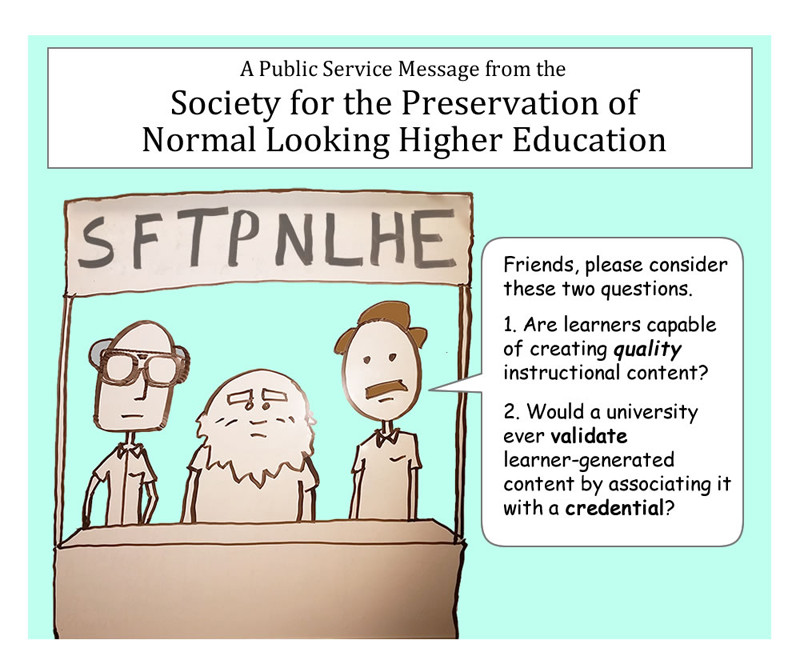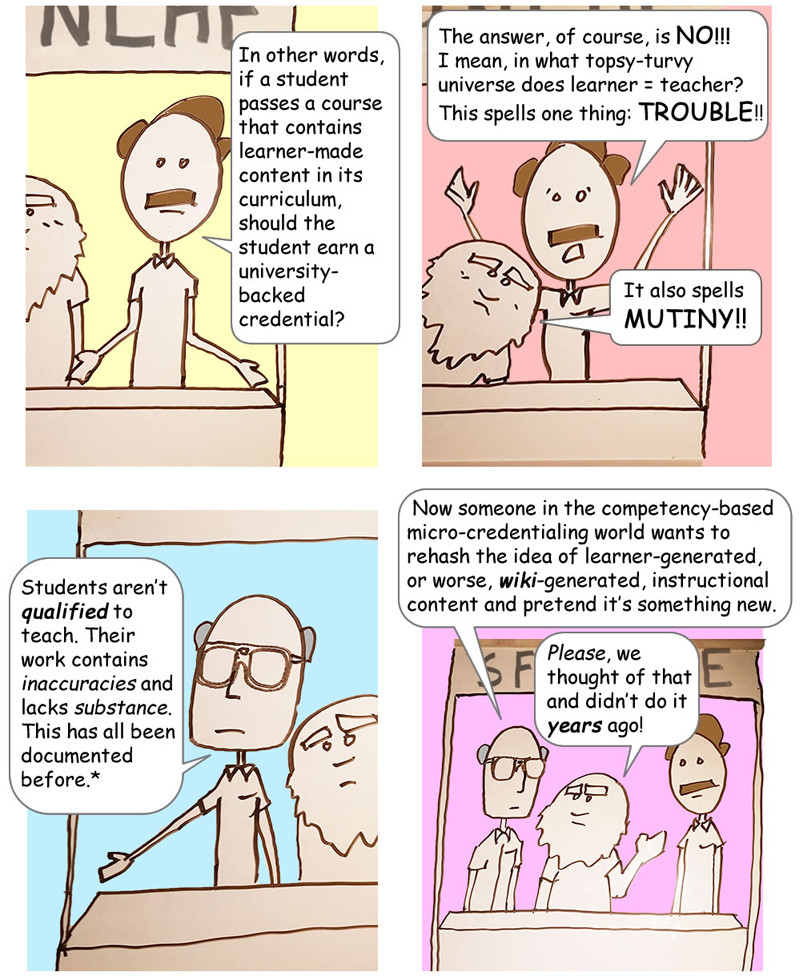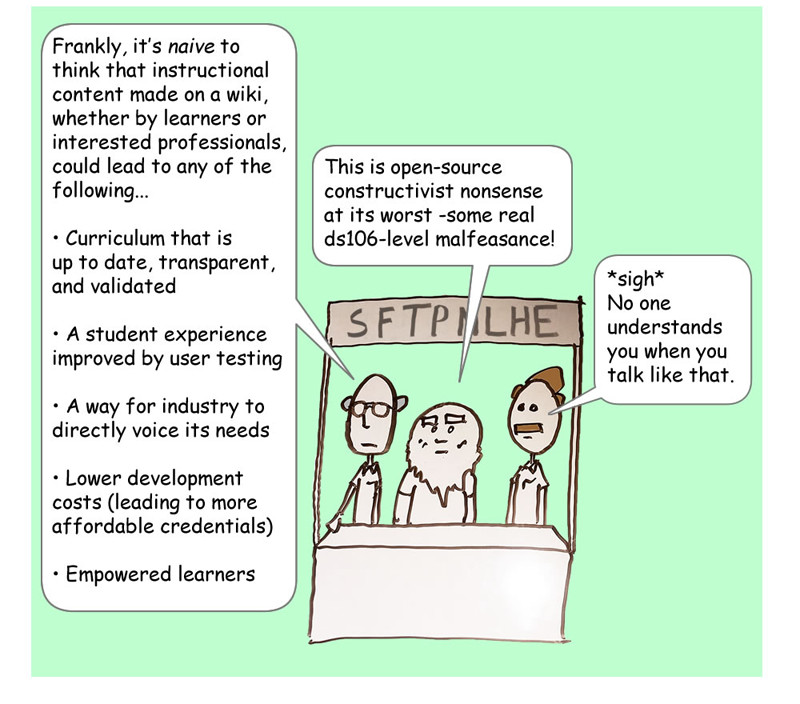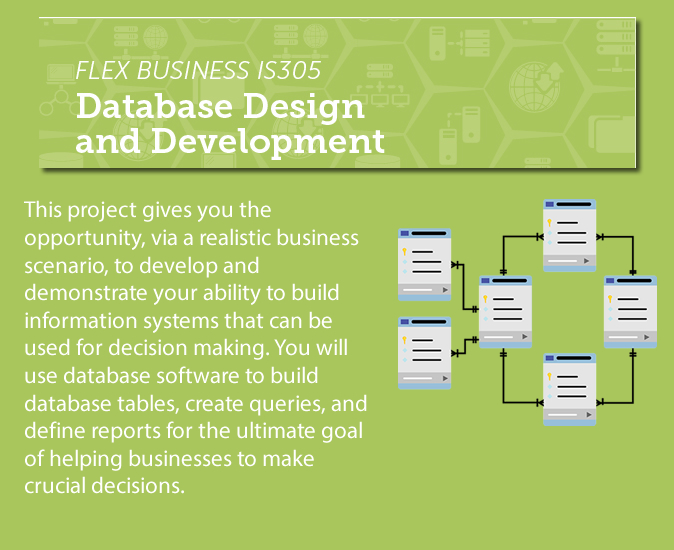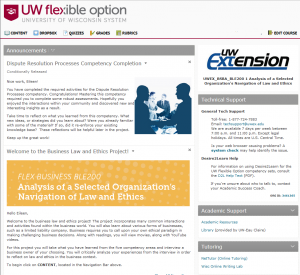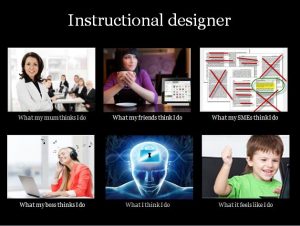
Growing up, I never heard a guidance counselor mention the instructional design field when describing career opportunities. As an undergraduate student thinking of a career in education, I thought the choices were limited to working as an instructor or as administrative staff. After a little bit of luck and a lot of hard work, I found that I have a passion for instructional design. I’d like to share how I found myself in the middle of a great instructional design team at UW–Extension’s CEOEL, some things I learned about the instructional design field while coming from an outside perspective into the instructional design community of practice, and some tips I picked up that may be of help to those interested in pursuing a career in instructional design.
Community of Practice
I began my entry into the instructional design community of practice as a student worker. I remember realizing that instructional design was a career I was interested in because of how excited I was to do the very basic tasks (e.g., link checks, quality assurance) required by my role.
